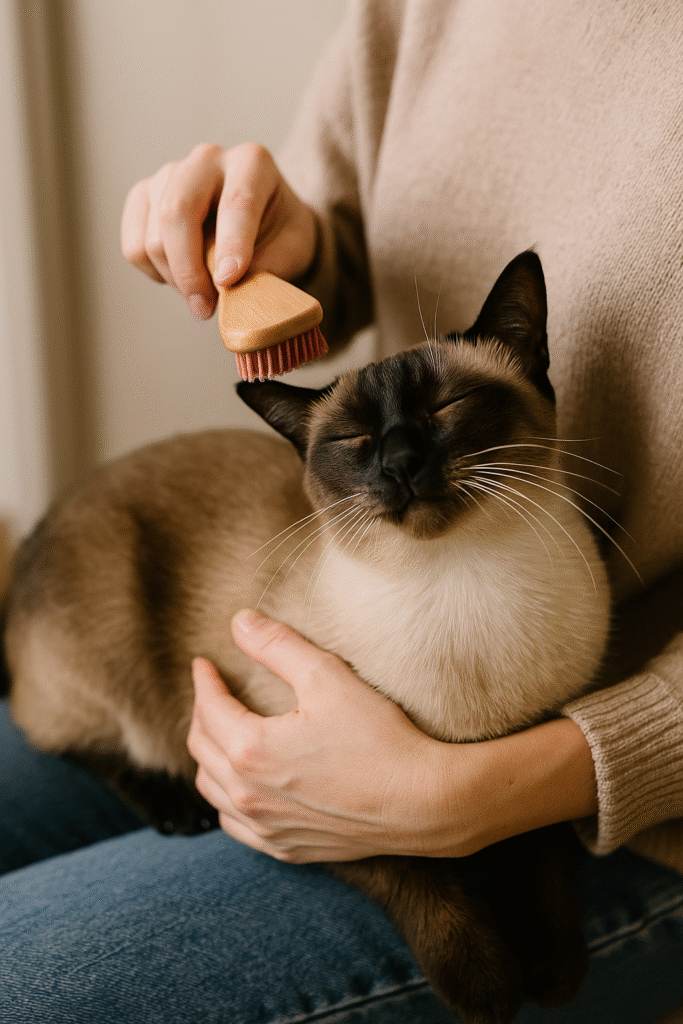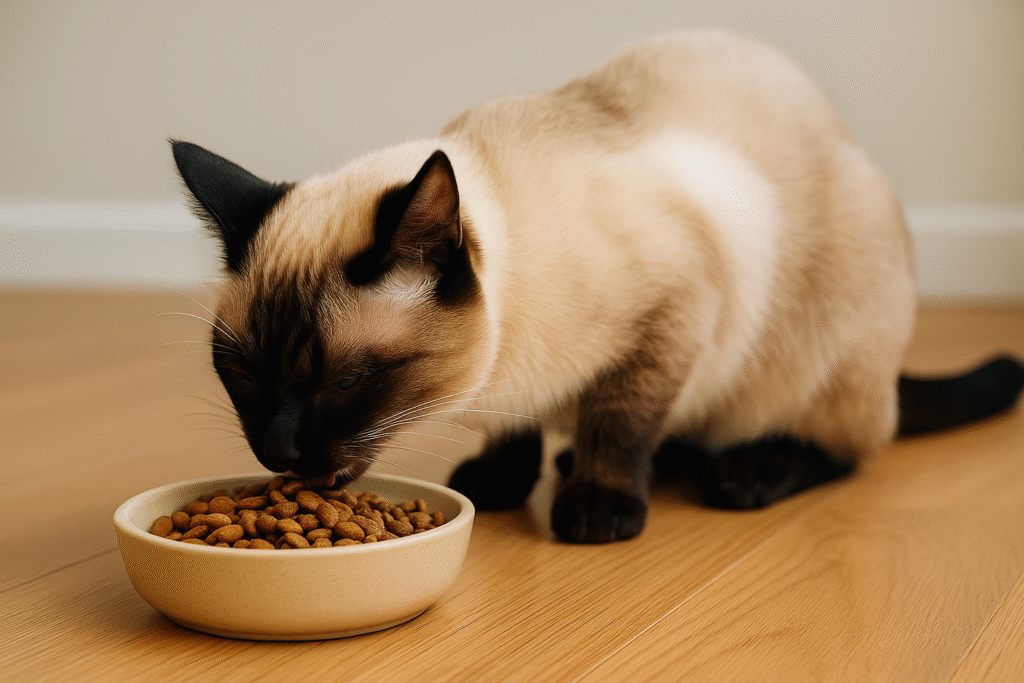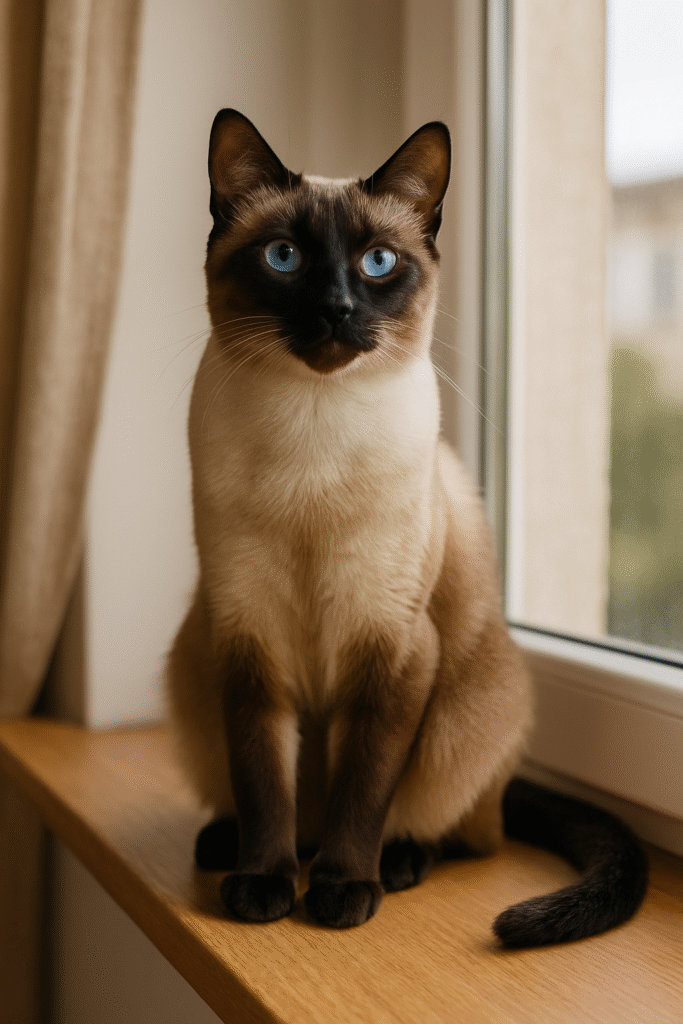Siamese Cats: Personality Traits, Care Tips & Common Health Issues
Imagine this: you sit down with a cup of tea and a sleek, blue-eyed cat hops onto your lap, chirping as if holding a conversation. That’s the daily magic of living with a Siamese. But behind the beauty and charm is a curious, high-energy cat that needs engagement, structure, and informed care. This guide covers the personality you can expect, the routines that keep Siamese cats happy, and the health issues smart owners watch for—plus helpful links to deeper resources across our site.
Personality: Social, Vocal, Brilliant
Siamese cats are famously people-oriented. They’ll follow you from room to room, “talking” with expressive meows. Their high intelligence and playful drive make them quick learners—great for clicker training, puzzle toys, and even leash walks. Expect an affectionate “velcro” companion that wants to be where you are.
- Pros: affectionate, interactive, trainable, loves routines and games.
- Considerations: can become anxious or destructive if bored or left alone too long; needs daily engagement.
Curious about how Siamese compare to a large, gentle breed? See our deep dive on Maine Coon: Size, Personality & Grooming for a helpful contrast.

Daily Care: Routines That Work
1) Nutrition & Weight Management
Choose a high-protein, complete diet and measure portions to prevent overeating. Split meals into two to three feedings and use puzzle feeders to slow intake and add enrichment. For broader weight-control strategies, review our guide Preventing Obesity in Pets: Diet & Exercise Tips.
2) Enrichment & Exercise
Plan two or more 10–15 minute play sessions daily. Rotate wand toys, chase games, and food-puzzle challenges. Provide vertical territory (cat trees, shelves) and safe window views. Training short tricks (targeting, sit, high-five) channels their brainy energy.
3) Grooming & Hairball Control
Although Siamese coats are short and sleek, weekly brushing reduces loose hair and supports skin health. During seasonal sheds, add a second session and consider a hairball-control diet or gel as needed. For specific tactics, see Cat Hairball Remedies: What Works Best.
4) Companionship & Environment
Siamese cats dislike isolation. If your household is out most of the day, consider a second pet, a dedicated play routine before/after work, and interactive feeders while you’re away. Calm, predictable routines reduce stress and unwanted behaviors.
Common Health Issues (What to Watch For)
- Respiratory infections (kittens): watch for sneezing, discharge, lethargy—prompt vet care speeds recovery.
- Dental disease: introduce tooth-brushing early; schedule professional cleanings as recommended.
- Amyloidosis (liver): a breed-associated risk in some lines—monitor appetite, weight, and energy; keep regular bloodwork for early detection.
- GI sensitivity & hairballs: adjust diet, add brushing, and use proven remedies if vomiting or constipation appears (again, see our hairball guide).
Annual wellness exams (biannual for seniors) catch subtle issues early. Keep vaccines, parasite prevention, and dental care up to date.
Setting Up Your Home
- Vertical space: one tall cat tree plus additional perches.
- Interactive play: rotate toys weekly to keep novelty high.
- Safe retreat: a quiet nook or covered bed for decompression.
- Litter hygiene: one box per cat + one extra; scoop daily to reduce avoidance and stress.

When a Siamese Is (and Isn’t) the Right Fit
Choose a Siamese if you want a cat that participates in your day, learns new games, and “talks” about everything. If you prefer a quiet, independent companion, consider a lower-energy breed instead. Match your routine to their needs, and you’ll have a devoted, sparkling-eyed friend for years.
Related Reading
- Maine Coon: Size, Personality & Grooming
- Cat Hairball Remedies: What Works Best
- Preventing Obesity in Pets: Diet & Exercise Tips
Bottom line: keep minds busy, bodies lean, and routines consistent. With thoughtful care, your Siamese’s big personality becomes the heart of your home.

